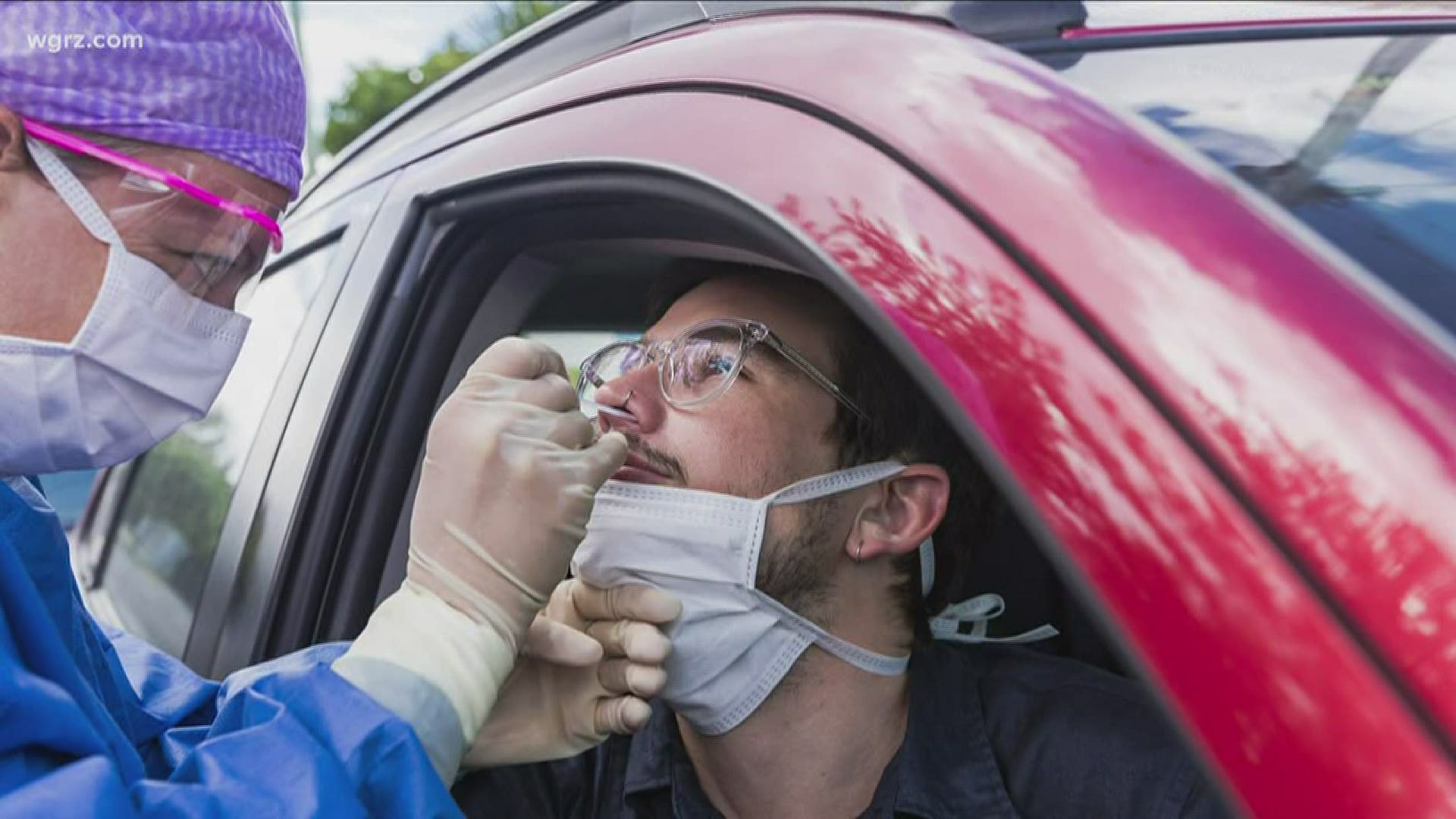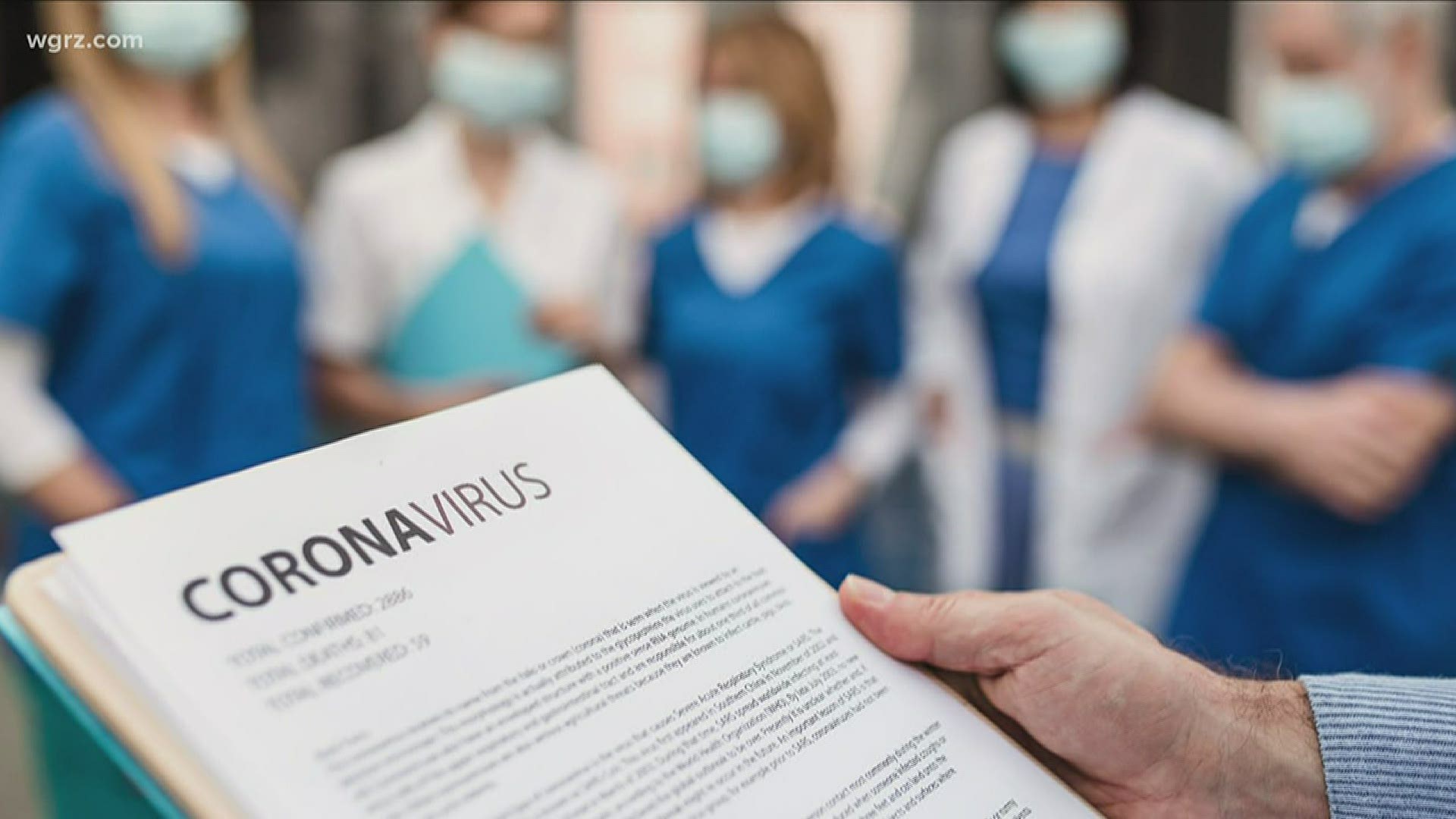ALBANY, N.Y. — Governor Andrew Cuomo announced Saturday morning that he will be signing another executive order, which will allow independent pharmacists to conduct diagnostic COVID-19 tests.
Since New York State has boosted lab capacity, Cuomo says the state now needs to increase the number of COVID-19 collection sites. The governor says allowing these pharmacies to be testing locations will help the state take advantage of the increased lab capacity, thus allowing for more tests to be conducted.
Currently, there are over 5,000 independent pharmacies in the state.
Cuomo also announced that New York State is expanding its coronavirus diagnostic testing criteria so all first responders, front-line health care workers and essential workers can be tested.
"These people have been carrying the load and they have been subjected to the public all during this crisis," Cuomo said, adding, "If they're infected, they could possibly spread it to a large number of people."
The governor said the list of people who qualify for testing will continue to expand as testing capacity increases.
"Hopefully one day we get to the point where anybody who wants a test can walk in and get a test, right? That was the dream," Cuomo said.
Also on Saturday, Cuomo announced that healthcare workers in New York City received antibody testing and that NYPD, New York State Police and transit and transport workers will also be eligible for antibody testing beginning next week.
New York officials say the state is adding as much testing capacity as possible.
At this time, New York State is conducting more tests per capita than any country around the world, according to the governor.
Here's the list of professions included in Governor Cuomo's presentation who are now eligible for a coronavirus diagnostic test:
First responders:
- Firefighters
- Paramedics
- Emergency Medical Technicians (EMTs)
- Police Officers Correction
- Parole/Probation Officers
Front-line health care workers:
- Direct Care Providers
- Health Care Practitioners
- Professionals Aides and Support Staff (e.g. Physicians, Nurses, Public Health Personnel)
- Medical Specialists
- Nutritionists and Dietitians
- Occupational/Physical/Recreational/Speech Therapists
- Psychologists/ Psychiatrists
- Residential Care Program Managers
Essential workers:
- Animal Care Workers (e.g. Veterinarians)
- Automotive Service and Repair Workers
- Bank Tellers and Workers
- Building Code Enforcement Officers
- Child Care Workers
- Client-Facing Case Managers and Coordinators, Counselors (e.g. Mental Health, Addiction, Youth, Vocational, Crisis, etc.)
- Delivery Workers
- Dentists and Dental Hygienists
- Essential Construction Workers at Occupied Residences or Buildings
- Faith-Based Leaders (e.g. Chaplains, Clergy Members)
- Field Investigators/Regulators for Health and Safety
- Food Service Workers
- Funeral Home Workers
- Hotel/Motel Workers
- Human Services Providers
- Laundry and Dry Cleaning Workers
- Mail and Shipping Workers
- Maintenance and Janitorial/Cleaning Workers
- Optometrists, Opticians, and Supporting Staff
- Retail Workers at Essential Businesses (e.g.Grocery Stores, Pharmacies, Convenience Stores, Gas Stations, Hardware Stores)
- Security Guards and Personnel, Shelter Workers and Homelessness Support Staff
- Social Workers
- Teachers/Professors/Educators
- Transit Workers (e.g. Airports, Railways, Buses, and For-Hire Vehicles)
- Trash and Recycling Workers Utility Workers


